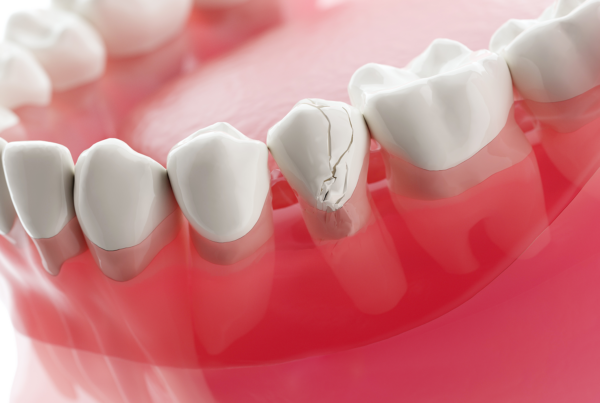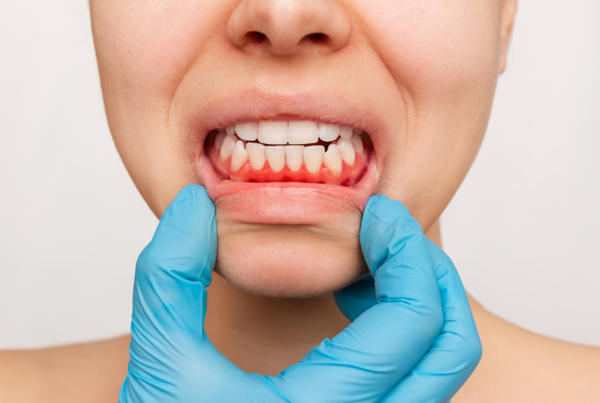Toothaches can be relentless, disrupting daily activities and making even the simplest tasks unbearable. Whether it strikes suddenly or worsens over time, understanding how to manage tooth pain is crucial. Here’s a practical guide to help you find relief and know when it’s time to call a dentist.
 What Can I Do for Severe Tooth Pain?
What Can I Do for Severe Tooth Pain?
When you’re hit with severe tooth pain, it can feel overwhelming, but acting quickly to manage the pain is crucial. While these remedies can help reduce discomfort, it’s important to understand that they won’t cure the underlying problem. Here’s a more detailed look at how to manage intense tooth pain while you prepare to see a dentist.
1. Over-the-Counter Pain Relievers
Non-prescription painkillers like ibuprofen or acetaminophen are some of the most common ways to relieve tooth pain. Ibuprofen, in particular, is an anti-inflammatory, which means it not only reduces pain but also targets the swelling that often accompanies a toothache. Follow the instructions on the packaging carefully, and avoid exceeding the recommended dosage.
For those who cannot take ibuprofen (due to medical conditions or allergies), acetaminophen is a good alternative, though it mainly targets pain rather than inflammation. Remember, while these medications can help for a short time, they don’t address the root cause, so it’s important not to rely on them long-term.
2. Cold Compress
A cold compress is an excellent way to alleviate pain, especially if the toothache is accompanied by swelling. Applying an ice pack or a cold cloth to the outside of your cheek in 15-minute intervals can numb the area and reduce inflammation. The cold causes blood vessels to constrict, which reduces swelling and dulls the sharp pain of a toothache. Make sure to wrap the ice pack in a cloth to avoid damaging your skin from the direct cold.
If your tooth pain is due to trauma or injury, using a cold compress immediately can prevent further swelling and ease discomfort in the hours following the injury.
3. Saltwater Rinse
A saltwater rinse is a simple yet effective method for relieving tooth pain and reducing inflammation. Salt is a natural disinfectant, and a warm saltwater solution can help wash away debris, reduce swelling, and heal oral wounds. To make a saltwater rinse, dissolve half a teaspoon of salt in a cup of warm water. Swish it around your mouth for 30 seconds, focusing on the area where you feel pain, before spitting it out.
This remedy can also help loosen any food particles stuck between your teeth, which can sometimes be the cause of pain. However, it’s important not to swallow the saltwater, as it can lead to dehydration or nausea.
4. Clove Oil
Clove oil has been used for centuries as a natural remedy for dental pain. It contains eugenol, a compound with both anesthetic and antibacterial properties, making it a great option for temporary relief from toothache. To use clove oil, dip a small cotton ball into the oil and apply it to the aching tooth or gum area. Be sure to avoid using too much, as clove oil can cause irritation in sensitive mouths if applied in excess.
Alternatively, you can dilute the clove oil with a carrier oil, such as olive or coconut oil, before applying it to the affected area. This method ensures you still receive the pain-relieving benefits without risking irritation.
5. Hydrogen Peroxide Rinse
While not as common as saltwater, a hydrogen peroxide rinse can also be beneficial in certain cases. A diluted hydrogen peroxide solution (3% hydrogen peroxide mixed with equal parts water) can help kill bacteria, reduce plaque buildup, and soothe irritated gums. Be very cautious to avoid swallowing the solution, and use this method sparingly.
6. Peppermint Tea Bags
Peppermint tea has mild numbing properties, which can help reduce toothache pain. After brewing a peppermint tea bag, let it cool and then apply it to the affected area. You can also place a used, cooled tea bag in the freezer for a few minutes before applying it to the tooth for a soothing cold compress effect.
7. Garlic Paste
Garlic is well-known for its antibacterial properties, and it can be surprisingly effective for alleviating tooth pain. Crushing a garlic clove to form a paste and applying it directly to the painful area can help kill harmful bacteria and temporarily reduce pain. Some people also chew a clove of fresh garlic for similar effects, though the strong taste may not be pleasant for everyone.
8. Elevate Your Head
Pain can intensify when blood flows more freely to your head, especially when lying down. Keeping your head elevated, even during the day, can minimize the throbbing sensation associated with tooth pain. Propping yourself up with pillows while sleeping may also help reduce discomfort during the night.
 How Do You Get Rid of a Toothache at Night?
How Do You Get Rid of a Toothache at Night?
Toothaches often feel worse at night, mainly because blood flow to the head increases when lying down, amplifying pain. Here are a few tips to ease tooth pain and help you get some rest:
- Elevate your head: Propping up your head with pillows can prevent blood from pooling in your head and intensifying the pain.
- Apply numbing gel: Over-the-counter oral gels containing benzocaine can numb the painful area for a few hours, allowing you to fall asleep.
- Avoid certain foods and drinks: Stay away from acidic, cold, or hard foods before bedtime, as they can irritate the tooth further.
- Maintain a routine: Stick to your regular dental hygiene routine, as brushing and flossing can help keep the area clean and free from aggravating debris.
If the toothache disrupts your sleep regularly, it’s likely time to visit your dentist for a thorough evaluation.
 When Should You See a Dentist for a Toothache?
When Should You See a Dentist for a Toothache?
While minor toothaches can often be managed with at-home remedies, some symptoms should prompt a visit to your dentist sooner rather than later. Ignoring these signs could lead to more serious dental issues, so it’s essential to know when professional care is needed.
- Persistent Pain: If your toothache lasts more than a day or two, it’s usually a sign that something more serious is going on, such as a cavity, infection, or gum disease. Persistent pain shouldn’t be ignored, as it can worsen without proper treatment.
- Swelling or Fever: If you notice swelling in your face, gums, or jaw, or you develop a fever, these could be signs of a dental abscess. An abscess is a painful infection at the root of a tooth or in the surrounding gum tissue, and it requires immediate dental care to prevent the infection from spreading.
- Sensitivity to Hot and Cold: Tooth sensitivity is common, but if you experience a sudden, sharp pain when consuming hot or cold foods and drinks, it could be due to enamel damage, gum recession, or a developing cavity. Over time, untreated sensitivity may lead to more severe discomfort and tooth damage.
- Bad Taste or Smell: A lingering bad taste or foul odor in your mouth can be a sign of infection or tooth decay. Bacteria from tooth decay or a dental infection can create a bad smell, and addressing this issue early can prevent further complications, such as tooth loss.
- Difficulty Chewing or Biting: If your toothache worsens when you chew or bite down, it could indicate a cracked tooth, a cavity, or an infection that needs immediate attention. Pain during chewing is often a sign that your tooth structure is compromised.
Ignoring these symptoms may lead to more severe dental problems, including tooth loss, gum disease, or infections that can spread to other parts of the body. Scheduling an appointment with your dentist as soon as these signs appear can save you from prolonged discomfort and more extensive, costly procedures down the road.
 Schedule Your Appointment Today
Schedule Your Appointment Today
Toothaches are a signal that something isn’t right. While home remedies can offer temporary relief, they’re no substitute for professional care. If you’re experiencing persistent or severe tooth pain, our dental team is here to help. Contact us today to schedule an appointment and get lasting relief from your toothache!








